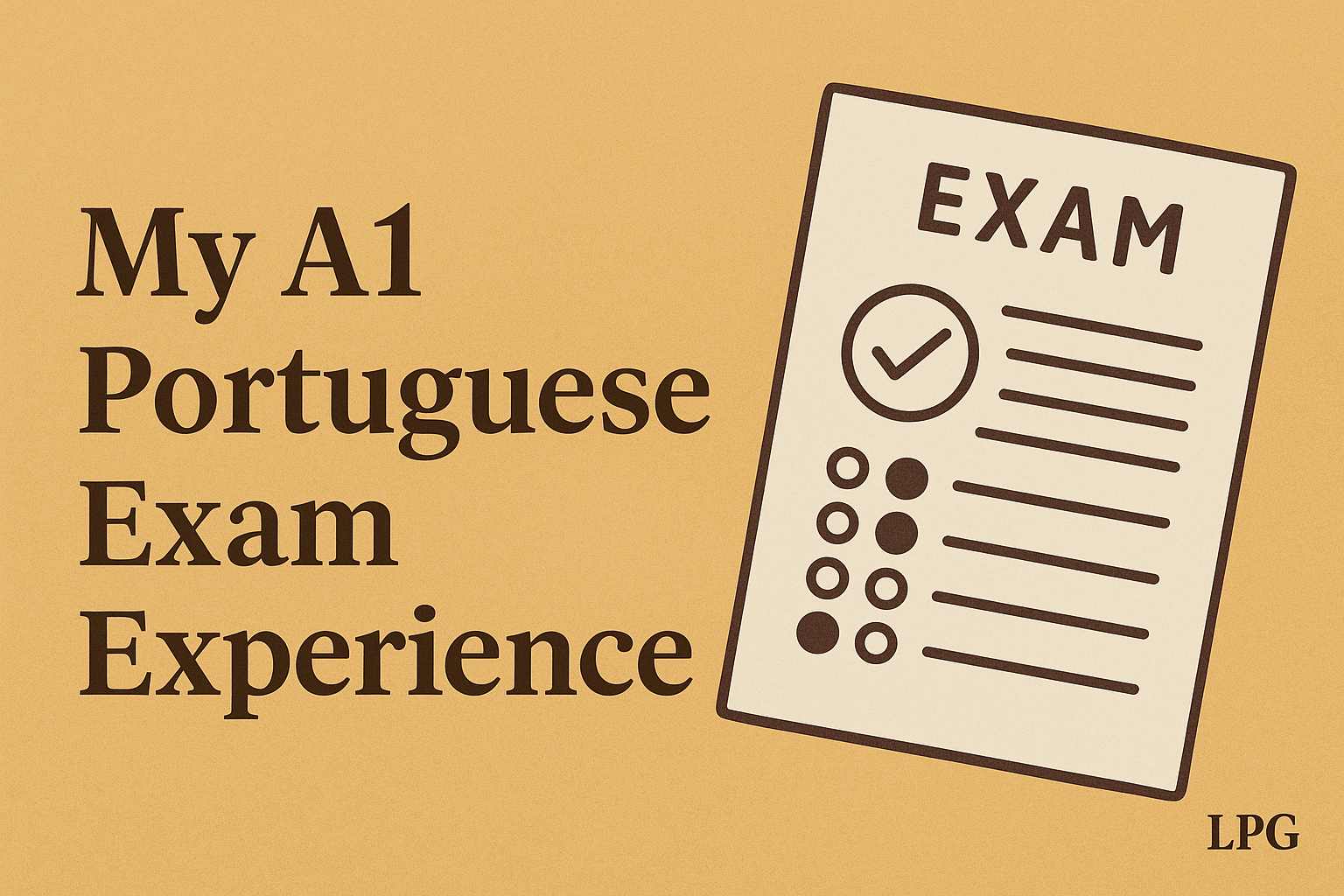
Exams & Certification
Taking the A1 Portuguese Exam: My Experience and What You Should Know
I recently decided to take the A1 European Portuguese exam—not because it was required, but to get a feel for the process before eventually taking the A2, which is necessary if I want to apply for a Portuguese passport. I also saw it as a way to validate my learning so far and build confidence with a real-world test.
Here’s how it went.
🧠 Why I Took the Exam
While the A1 wasn’t mandatory for me, I saw it as a smart stepping stone. I wanted to understand how the exam is structured, what the environment would be like, and how the timing works — without the pressure of needing to pass for official purposes. It also gave me a chance to test my learning in a practical way and earn a certificate to mark my progress.
📚 How I Prepared
My preparation focused on two areas:
- Grammar and practice questions (self-study at home)
- Speaking with a conversational tutor
This gave me a balanced approach—solid foundations and real-time speaking practice. I studied specifically for the exam for about two months.
I found there were plenty of good resources for European Portuguese at the A1 level, though not many actual practice papers, which made exam-specific preparation a little trickier.
🏫 On the Day
I travelled about two hours to a large city to sit the exam at a local school. Due to the distance and early start of the exam (9am) I stayed overnight the night before. The environment was okay, but I felt it could have been managed better. We weren't allowed to use their car park which meant I had to go elsewhere (not easy in an unknown city).
One issue was that they changed the timing on the day, which wasn’t ideal after such a long journey. Instead of just the morning it was going also going to be in the afternoon as well. I’d definitely recommend staying in the area the night after as well and planning for food, transport, and parking. Next time, I’d take a taxi to avoid the parking stress.
📄 The Exam Format
The exam included all four skills:
- Speaking (this was first)
- Reading and writing (combined section)
- Listening (last)
The listening was the hardest for me because I have mild hearing difficulties, and the clarity and speed made this part more challenging. The oral exam was the most nerve-wracking. It was filmed and we went in with another student although we interacted only with the questioner. One of the most difficult parts was describing a photo, it wasn't exactly clear what they were looking for but after a while they do give you prompts.
⚠️ Surprises & Lessons Learned
Besides the schedule change, nothing in the exam format really surprised me, but I was glad I had done practice questions so I was familiar with what was required.
A few of the other people doing the exam were surprised by the format and how to answer questions etc., so I say that good preparation is key!
💬 Would I Recommend It?
Absolutely. Even if you don’t need to take the A1, it’s excellent preparation for more advanced exams like the A2 or B1. You’ll be more relaxed next time, and nothing will come as a surprise.
🧭 Final Tips
- Do the practice papers—and if you can’t find A1 ones, try A2 instead; the formats are very similar.
- Practice describing pictures out loud.
- Treat the day like a full event: plan transport, food, and downtime.
It’s a great confidence builder—and a useful checkpoint on your Portuguese journey.